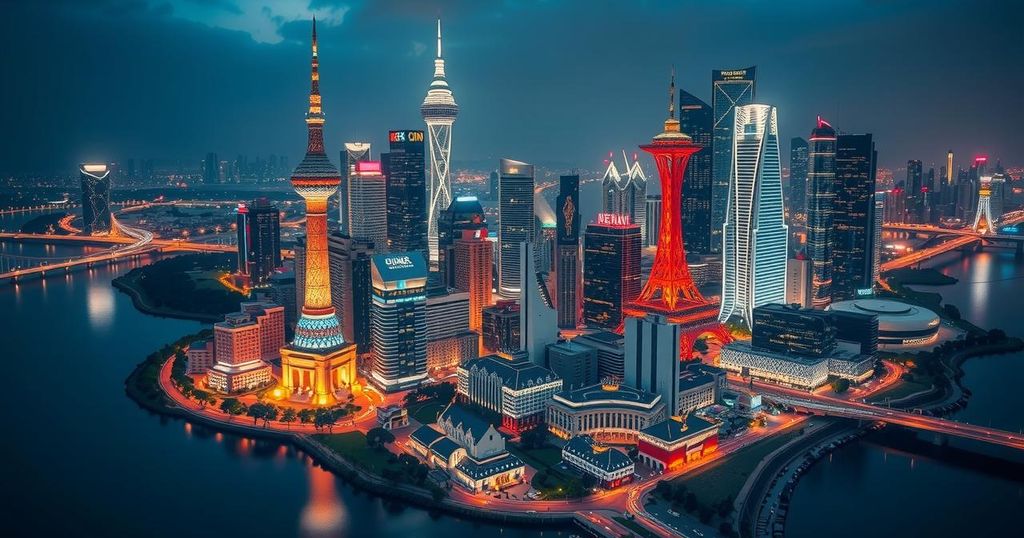Myanmar’s Civil War: A Risk to China’s Crucial Trade Route
Summary
Myanmar’s civil war, stemming from a military coup in 2021, threatens a crucial trade route with China, known as the China-Myanmar Economic Corridor. The conflict has resulted in significant economic disruption, limiting trade and jeopardizing investments in border towns like Ruili. As Beijing attempts to mediate between the military junta and rebel forces, the future of these ties remains uncertain, posing risks to both economic interests and local populations affected by the violence.
Myanmar’s ongoing civil war poses a significant risk to a vital trade corridor that China has heavily invested in, aimed at connecting southern China to the Indian Ocean through Myanmar. Once characterized by the phrase “One village, two countries,” the border region has dramatically changed, with increased security measures, including formidable fences and surveillance, marking the area as a point of tension rather than collaboration. The war, ignited by a military coup in 2021, has destabilized regions such as Shan State, which borders China, complicating trade relations that previously thrived. China’s economic ambitions are now threatened as significant portions of Myanmar fall under the control of armed rebel groups. The conflict has caused disruptions in trade, with crucial routes like those leading to the strategic town of Muse becoming battle zones. Despite China’s attempts at mediation, including facilitating ceasefires, these efforts have largely failed. As both the military junta and various ethnic armed groups engage in conflict, the international standing of China is at risk, being perceived as trying to navigate a complex web of alliances. The situation exacerbates the plight of residents in border towns like Ruili, where local economies have shrunk due to limited cross-border trade and increased security protocols. Moreover, many workers from Myanmar, who once provided essential labor in Chinese industries, now find themselves unable to cross the border due to strict travel restrictions. Individuals like Li Mianzhen, who used to sustain her livelihood through cross-border trade, express deep concern over the ongoing violence and economic deterioration. As Chinese industries look to maintain stability along the trade corridor, the potential for prolonged conflict prompts fears about the future of China’s investments and its ability to negotiate peace in Myanmar. The added dimension of military engagement, civil unrest, and economic ties illustrates the precarious balance China must maintain in this region as it seeks to protect its interests while navigating a fragile political landscape.
The article discusses the impact of Myanmar’s civil war on a significant trade route that China has developed, known as the China-Myanmar Economic Corridor. This corridor is essential for fostering economic ties and facilitating trade between China and the Indian Ocean. However, the civil unrest resulting from a military coup in Myanmar has undermined these ambitions, creating uncertainty and undermining security along the China-Myanmar border. The article highlights the challenges faced by local residents and Chinese businesses in border town Ruili, showcasing the dual threats posed to economic stability and humanitarian concerns amid ongoing conflict.
The conflict in Myanmar presents a multifaceted challenge for China, jeopardizing vital economic interests while exposing the dire humanitarian implications of the war. As the military regime faces mounting pressure from rebel forces, the stability of the China-Myanmar Economic Corridor remains precarious. The ongoing tensions underline the complexities of regional politics, trade relations, and the imperative for China to navigate these challenges prudently. The prevalent fears among displaced individuals and workers reflect the broader consequences of warfare on local economies and human lives, emphasizing the urgency for dialogue and reconciliation.
Original Source: www.bbc.com








Post Comment